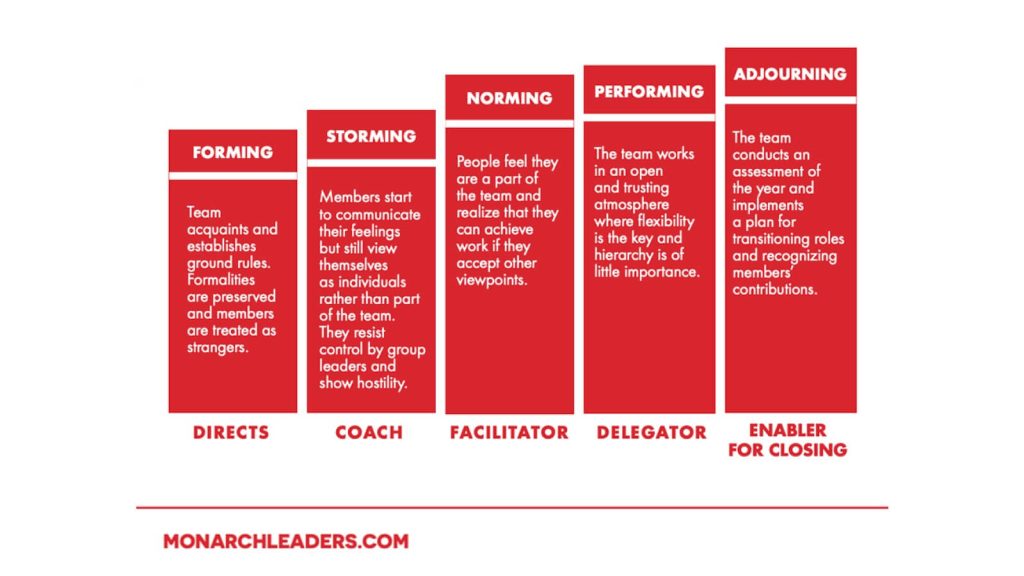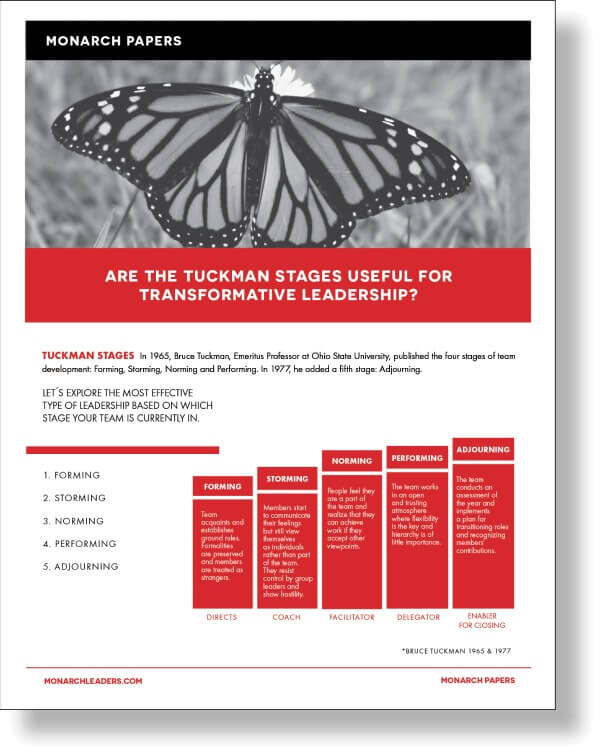The purpose of the Tuckman Model is to identify and understand what stage a team is operating in. It can be used at any point in the development process to build awareness of how the team is maturing and developing strategies to move forward.
In 1965, Bruce Tuckman, Emeritus Professor at Ohio State University, published the four stages of team development: Forming, Storming, Norming, and Performing. In 1977, he added a fifth stage: Adjourning.

Let’s explore the most effective type of leadership based on which stage your team is currently in.
Forming
The leader Directs because in this stage the group is getting to know each other. They are negotiating the rules of engagement; the group is working on the first steps of identity. At this time the leader needs to be direct to be seen as a guide for the other members of the team.
Storming
In this stage the leader needs to become more of a Coach. During this stage the group starts sharing feelings and ideas. They are taking certain risks to test the team’s commitment towards trust of the information shared. Coaching is effective because it invites members to share in a less conformational manner.
Norming
During this stage the members feel part of the team. There are more established rules which gives the team more clarity on how to behave. In a sense, the team begins to have a better idea of the team’s DNA or anatomy. The leader’s role as a Facilitator is crucial; it is setting up the stage to delegate and empower.
Performing
During this stage the team is solid and has a clear sense of direction. The members know the objectives/goals and have a clear understanding of what the individual tasks are. The leader acts as a Delegator which is the most effective role for this stage. The group needs to be empowered, and the leader needs to trust the team and rely on them to provide results.
Adjourning
Mission accomplished. The leader is an Enabler for the final closing. The initial goals have been reached, and the leader gives recognition for the efforts of each of the individuals and also celebrates successes made as a team. This can also be applied when a term is over, for example; project management.
When Problems Arise
The most common situation I have faced while working with groups is that the leader has one clear style of interaction.
When this occurs, the input of the team is usually not considered, and the style of the boss tends to dictate the behavior of the team. In some cases, leaders are quick to delegate when the team is in the “Storming Stage” instead of the “Performing Stage”.
The Tuckman Stages are a critical element of transformational leadership, and it can become a very effective tool for leaders to use and adapt depending on which stage their team is in.
Download this overview in the Monarch Paper below. And then, check out the Tuckman Assessment to figure out which Tuckman Stage your team is currently in.

